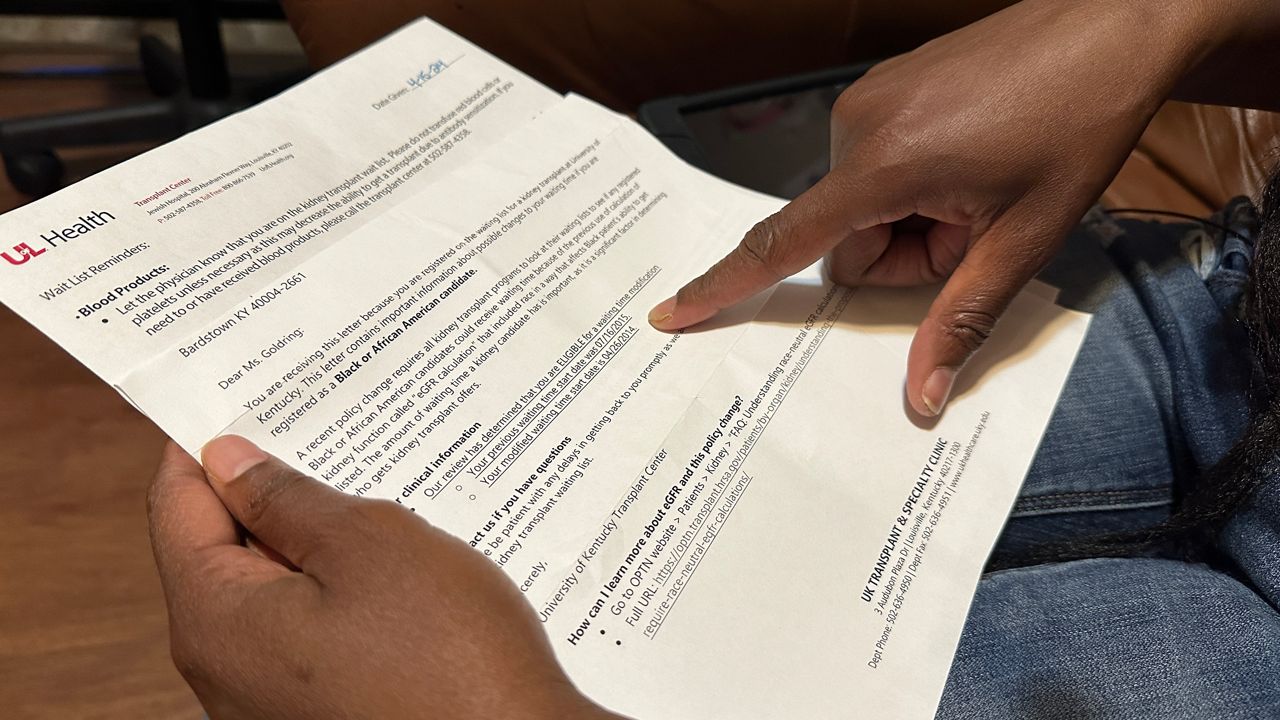LOUISVILLE, Ky. — A standard kidney test, the estimated Glomerular Filtration Rate (eGFR), used to include race to measure the organ’s function.
Several medical professionals and students raised the alarm about this, and a task force was created in 2020 to find a race-free approach. The race factor was eliminated in 2022, and between Jan. 2023 and March 2024, more than 14,000 Black kidney patients have moved up the transplant list.
LaQuayia Goldring, a National Kidney Foundation Advocate in Bardstown, is among the patients whose wait time was modified. She received her letter with the update last year.
While this came as good news for her, she was also frustrated. Her kidney started failing in April 2014, but she wasn’t put on the transplant list until July 2015 because of the test.

“It could have gave me that time to start looking for a donor early,” Goldring said. “I could’ve been telling my family like, ‘Hey, I’m going back into kidney failure. We can start looking now. What can we do?’"
"We could have come up with a social media campaign then. I could’ve hit the ground running, but they took that from me.”
After members of the medical community raised concerns about the race factor in the eGFR, the National Kidney Foundation and American Society of Nephrology created a task force that came out with a report in 2022 recommending a race-free test. The Organ Procurement and Transplantation Network approved the elimination of the race factor that same year.
“Those changes that were implemented by the transplant program resulted in positive results in reducing health care disparities between Black and non-Black patients,” said Yaser Al-Salmay, abdominal transplant surgeon at the University of Louisville Hospital.
Since the policy change, 2,700 people whose wait times were modified have received kidney transplants.
Goldring is active on social media to share her journey with the hopes of getting help with finding a donor.










